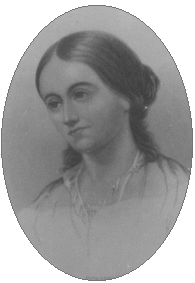Margaret Fuller: America’s First Public Intellectual
 On the 200th anniversary of her birth, Unitarian-Universalists are rediscovering and celebrating one of the giants of their movement, Margaret Fuller. She is acknowledged in the recent UU World article as one of the trio of key thinkers that defined the philosophy of Transcendentalism that emerged in the mid 19th Century as a challenge to the prevailing patriarchal “command and control” paradigm of the emerging capitalism, industrialism, and the related social engineering that was popular in mainstream progressive Protestant denominations, including mainstream Unitarianism.
On the 200th anniversary of her birth, Unitarian-Universalists are rediscovering and celebrating one of the giants of their movement, Margaret Fuller. She is acknowledged in the recent UU World article as one of the trio of key thinkers that defined the philosophy of Transcendentalism that emerged in the mid 19th Century as a challenge to the prevailing patriarchal “command and control” paradigm of the emerging capitalism, industrialism, and the related social engineering that was popular in mainstream progressive Protestant denominations, including mainstream Unitarianism.
Obscured in history, perhaps because of her gender, Fuller may in fact have played the critical role (as what some call America’s first public intellectual) in putting forward the Transcendentalist ideas of a more humanistic self-directed vision of human progress. Maybe more so than her colleagues Emerson and Thoreau, she championed those ideas in American popular cultural to counter the prevailing top-down model of social development.
Though it may sound like an oxymoron to contemporary UUs, in Massachusetts at the turn of the 19th Century
